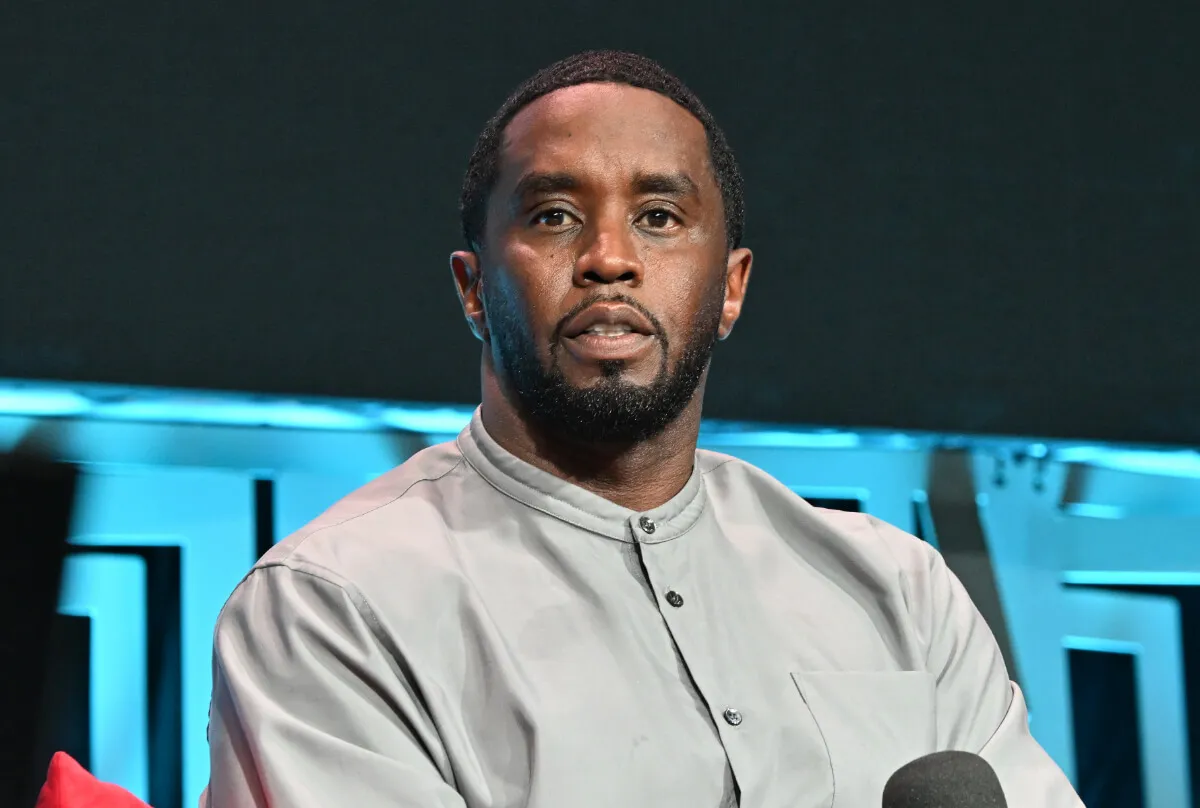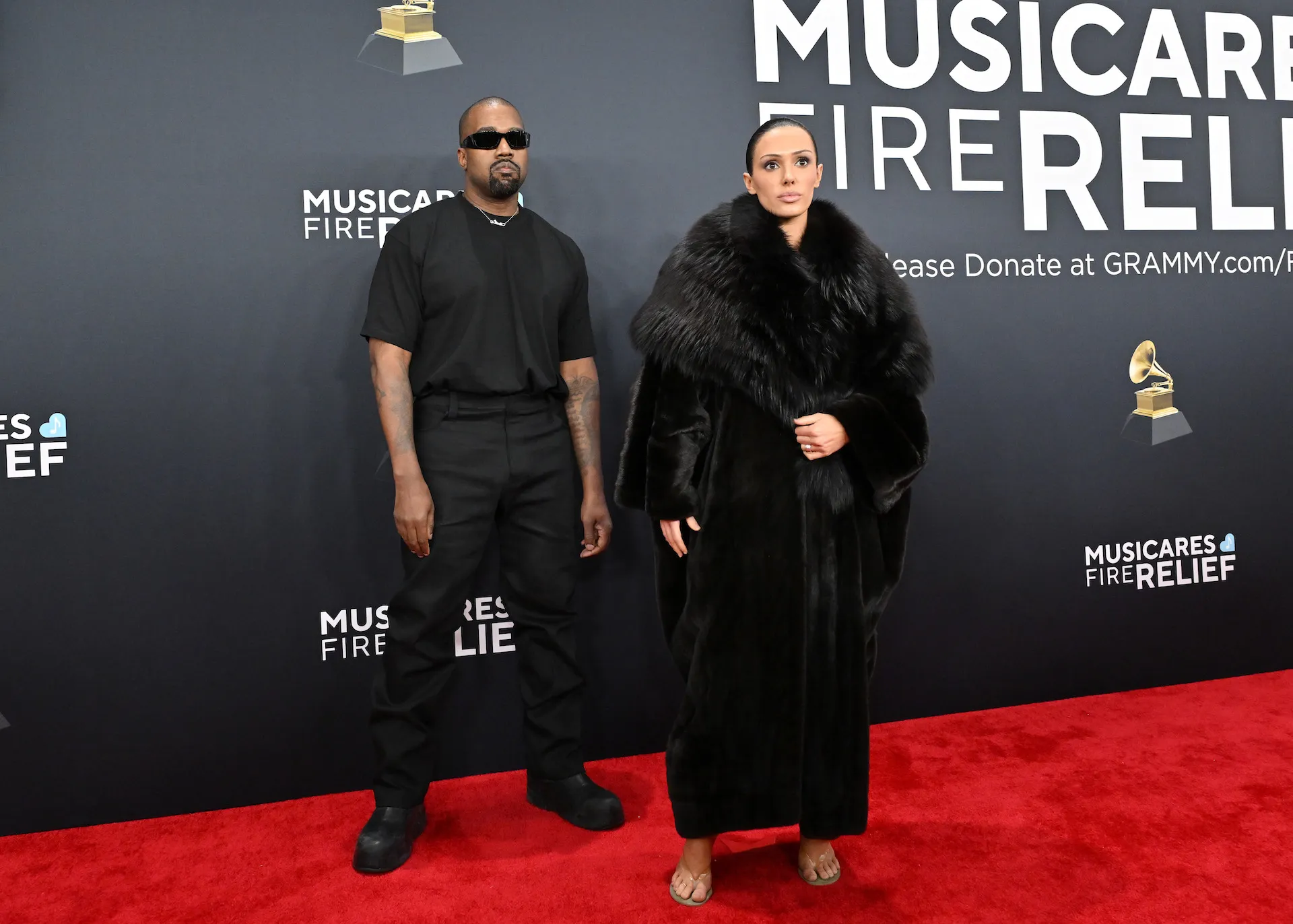‘Murdoch Mysteries’ Star Yannick Bisson Says He Had ‘No Idea’ the Show Would Be Such a Hit Ahead of Milestone 200th Episode
For more than a decade, Yannick Bisson has graced TV screens as William Murdoch, a police detective who employs groundbreaking forensic techniques to solves crimes in Toronto at the turn of the 20th century. Murdoch Mysteries is hugely popular in its home country of Canada, and it’s found a dedicated international audience as well, winning fans all over the world, including in the U.S., where the series airs on Ovation.
On March 7, the 200th episode of Murdoch Mysteries will air in the U.S. Showbiz Cheat Sheet talked with Bisson about why he thinks the show has lasted 13 seasons, how his character has changed over the years, and what special surprises are in store for fans in the upcoming episodes.
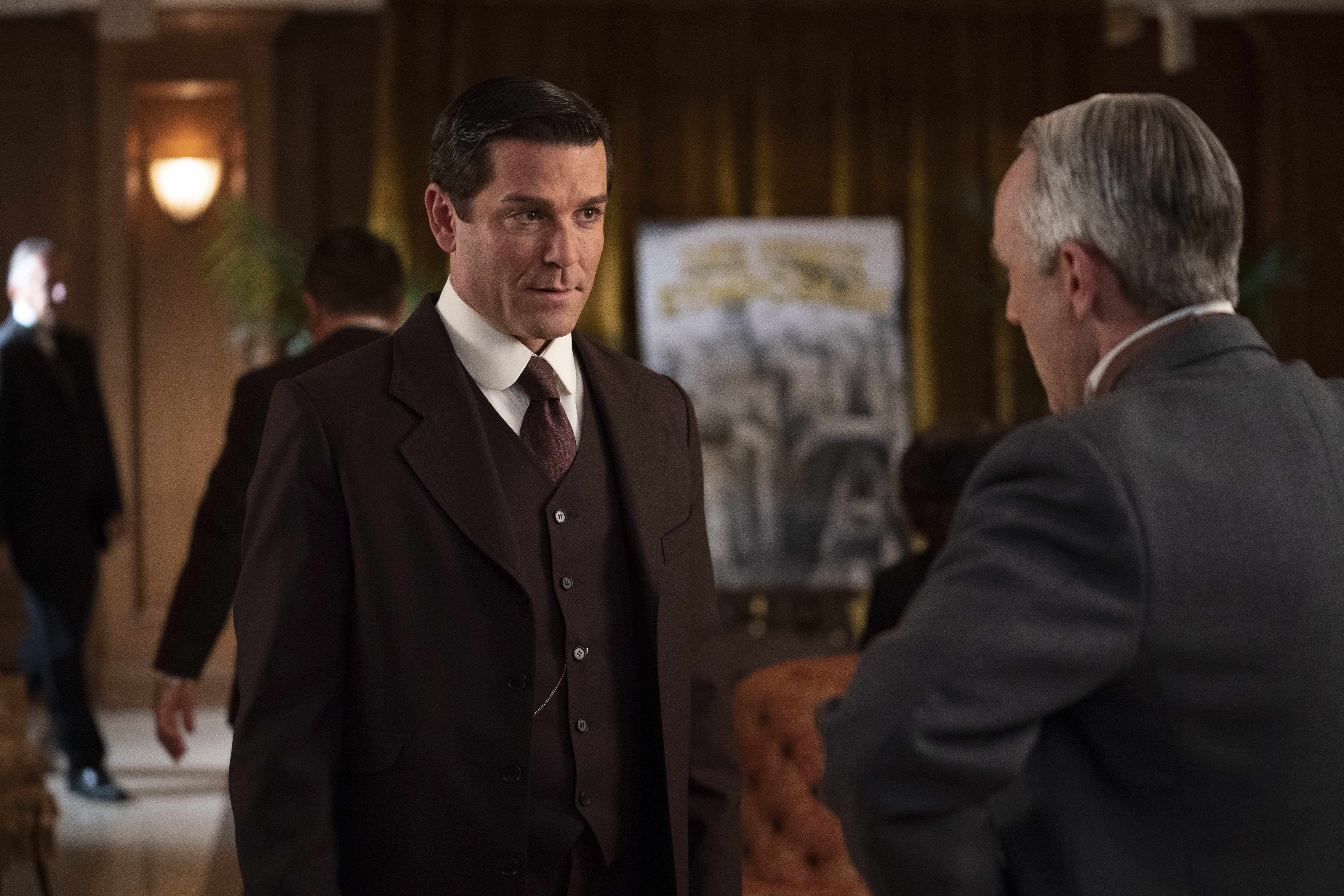
Congratulations on the 200th episode. When you started the show over a decade ago did you have any idea that it would end up being this successful and this long-lasting?
No, I had no idea. If I’m 100% honest. I assumed it assumed that it would be maybe two years, three years tops. There were no period shows at the time.
It’s the last thing in the world I expected, that this show would be a success. Now, that’s not to say that I didn’t work like I wanted it to be a success. Certainly, when you’re doing a period show and you’re out in the sea of a million other shows with strong budgets and stars and all the different things that give them a leg up, you don’t have as much budget to be able to really make it flash. So everything had to be tight. Everybody had to be on top of their game. We had to make the most out of the set and everything that we did. I believe I’ve always sort of fostered an expectation of, you know, everybody works at least as hard as I do. So I’ve always had to really push myself to make sure that every possible ounce of juice is on the screen.
How has your character evolved over the past 13 seasons?
Well, he started out fairly buttoned-down. And that was how he was written, how I built him. He is sort of the calm at the center of the big old sh*tstorm of comedic characters, crime, criminals, historical facts. But then he is very enthusiastic about the process of utilizing science, utilizing the meeting of great minds that will help him to get further into his craft, but also to specifically dissect a particular crime or a particular set of evidentiary things that are in front of him.
I like to say that Murdoch is a great guy. He’s kind of our best self on our best day. He’ll make the right decision. He will see the other person inside. He’ll become empathetic in spite of the circumstance. He’ll champion the little guy. But then at the end of the day, he’ll be rigid. A crime is a crime. And we often see that the bad guy, in the end, was doing the bad thing, possibly for the right reason, and Murdoch has to stand by and watch them be taken away.
At the end of the day, he’s going to do his duty. Though as the years have gone on, I think that’s been chipped away a little bit, like the layers of an onion, just a little bit at a time. Things are not all black and white. And sometimes there are judgment calls that have to be made. And that’s been the biggest evolution for him.
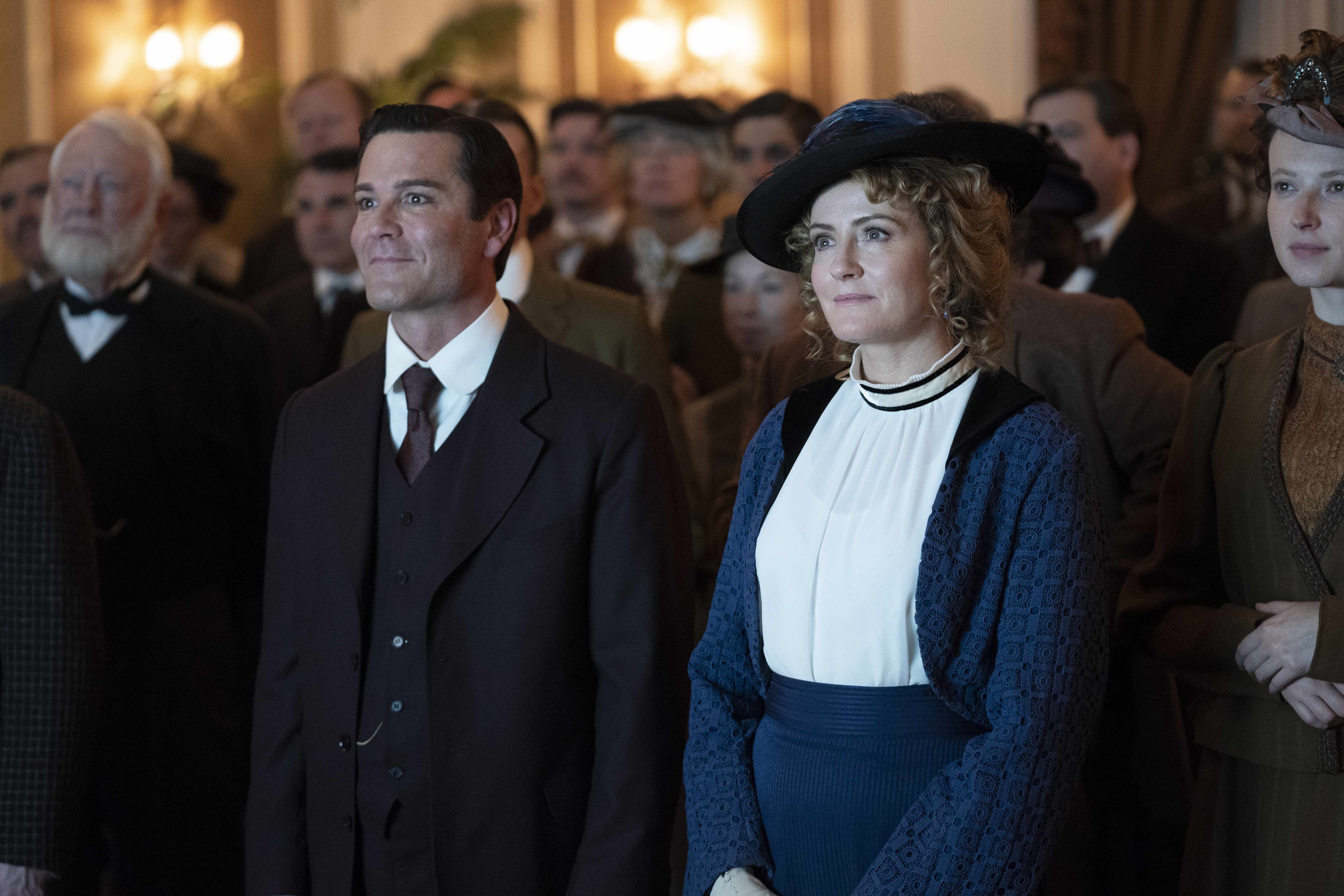
Murdoch Mysteries is incredibly popular in Canada, but it has fans all over the world. Do you have any idea why you think it resonates with international audiences as well as those in Canada?
That’s something that I haven’t quite been able to put my finger on and figure out. It’s something we talk about a lot. How is it that a Canadian show that is dubbed in French is one of the no. 1 shows in France? It makes no sense. And now we’ve debuted in Mexico this year and that’s going to create a whole new set of fans.
I can see the universal appeal of the show. We write it to talk about things that are relevant to everybody, universal themes. We talk about people being oppressed. We talk about gender equality. We talk about women’s rights. We talk about voting. We talk about oppression. We talk about segregation, all these different things that are very much as pertinent today as they were then. And that resonates with people. We don’t shy away from talking about things that are pretty harsh.
In addition to acting on the show, you’ve also directed a number of episodes. What’s it like to be on the other side of the camera?
It’s an extension of my artistic contribution to the show. I get to get in there even further and pull my sleeves up. It’s satisfying on a whole other level to be able to contribute in that way. And those episodes are really my favorite because I have an attachment to them that is different than the ones that I’m not directing.
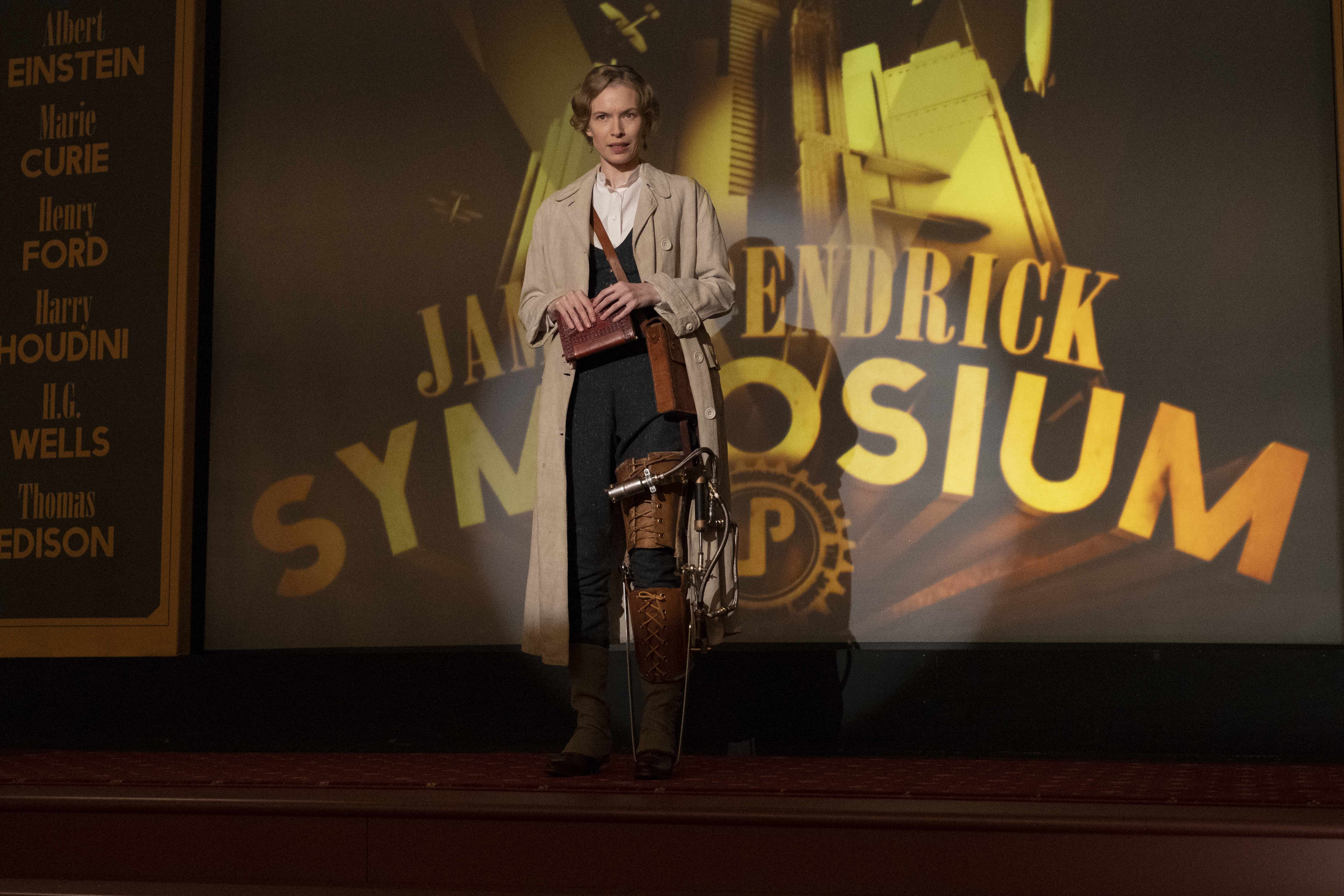
Is there anything in particular about the upcoming episodes that you’re really excited for viewers to see?
Oh, gosh, this season as a whole has a lot going on. Obviously the 200th episode is a big highlight. We’re bringing back a lot of the people who over the years have helped make the show a success. So that was exciting. It was a lot of fun to see some old faces. I think the fans will enjoy that a lot. And some baddies come back as well. Unsuspected baddies come back, which makes it a lot of fun.
We’ve got Colin Mochrie [who plays hotel detective Ralph Fellows] coming back. He does a terrific job being what turns out to be a mastermind bad guy, in a strange twist. It’s a heck of a season. It’s hard to believe that, as we go this far into it, that the writers get just keep topping themselves.
This interview has been edited and condensed for clarity.
The 200th episode of Murdoch Mysteries, ‘Staring Blindly Into the Future,’ airs Saturday, March 7 at 7 p.m. ET/4 p.m. PT on Ovation.
